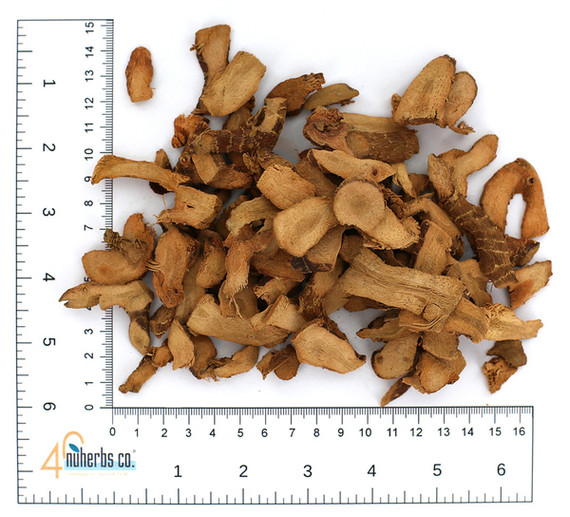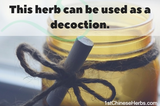Polygonatum Root (Solomon's Seal): Comprehensive Guide to Benefits and Uses
Polygonatum Root, also known as Solomon's Seal and Huang Jing in Traditional Chinese Medicine (TCM), is a revered herb that has been used for centuries for its wide range of health benefits. This powerful root is highly valued for its ability to nourish Yin, moisten dryness, and fortify the Kidneys, Lungs, and Spleen. In this comprehensive guide, we will delve into the myriad uses and health benefits of Polygonatum Root, providing a detailed overview of why it has become a cornerstone in holistic health and wellness.
What is Polygonatum Root?
Polygonatum Root, derived from the Polygonatum sibiricum or Polygonatum odoratum plant, is a traditional herb that has been used in various cultures for its restorative properties. In TCM, it is classified as a Yin tonic, primarily targeting the Kidney and Lung meridians. Known for its sweet, neutral properties, it has been used to treat conditions related to Yin deficiency, such as dryness, fatigue, and weakened vitality.
Polygonatum Root is often found in several forms including raw, prepared (steamed with black beans or other ingredients), powdered, or as part of herbal formulas. It is commonly included in decoctions, teas, or tinctures to enhance its therapeutic effects.
The Health Benefits of Polygonatum Root
1. Nourishing Yin and Moistening Dryness
Polygonatum Root is renowned for its ability to nourish Yin. Yin deficiency often leads to dryness in the body, manifesting in symptoms like dry mouth, dry skin, and general dehydration. Solomon’s Seal helps restore the balance by providing the moisture and nourishment the body needs to function optimally.
Its Yin-enhancing properties make it a prime herb for those experiencing excessive heat, menopausal symptoms, or internal dryness due to stress, illness, or aging.
2. Strengthens the Lungs and Alleviates Dry Cough
As a Lung tonic, Polygonatum Root excels in treating dry coughs, wheezing, and respiratory conditions. It is particularly beneficial for those suffering from chronic cough and dry throat associated with Yin deficiency. The root works by replenishing Lung Yin, improving moisture retention in the respiratory tract, and reducing inflammation in the lungs.
Regular use of Polygonatum Root has shown to ease breathing difficulties and strengthen the lungs, making it a vital addition to any herbal regimen focused on respiratory health.
3. Fortifies the Kidneys and Spleen
In Traditional Chinese Medicine, the Kidneys are seen as the storehouse of essential life energy, or Jing, which governs longevity and vitality. Polygonatum Root is frequently used to fortify the Kidney Yin and replenish depleted Jing, making it a key herb for promoting long-term health and vitality.
Additionally, it is a reliable tonic for the Spleen, which plays a central role in digestion and energy production. Individuals who experience fatigue, weak digestion, or reduced energy due to Spleen Qi deficiency will benefit from the restorative effects of Solomon's Seal.
4. Anti-Aging and Longevity
Polygonatum Root’s reputation as an anti-aging herb is well-deserved. By nourishing Kidney Yin and Lung Yin, it helps combat the effects of aging such as weakened vitality, bone loss, and cognitive decline. In TCM, Yin deficiency is closely associated with the aging process, and by replenishing Yin, Polygonatum Root promotes a youthful appearance, strong bones, and sharp cognitive functions.
Furthermore, Solomon’s Seal is loaded with antioxidants, which protect cells from oxidative stress and slow down the aging process, supporting both external and internal health.
5. Improves Digestion and Boosts Immunity
Known for its ability to strengthen the Spleen, Polygonatum Root is widely used to improve digestion, particularly for individuals suffering from weak appetite, bloating, and indigestion. By enhancing Spleen function, it increases the body’s ability to extract nutrients from food, leading to improved overall health.
Moreover, its immune-boosting properties help prevent illness and speed recovery from colds and flu, making it an essential herb for seasonal health support.
6. Balances Blood Sugar Levels
Polygonatum Root has been studied for its ability to help regulate blood sugar levels. Its active compounds work to improve glucose metabolism, making it a potential therapeutic option for those managing diabetes or blood sugar imbalances.
By enhancing insulin sensitivity, this herb aids in controlling blood sugar fluctuations and maintaining energy levels throughout the day.
How to Use Polygonatum Root
1. Decoctions
The most common method of consuming Polygonatum Root is through decoctions. Simmer the root in water for an extended period (around 30–45 minutes) to extract its beneficial compounds. This method is particularly effective for delivering Yin tonification and moistening effects.
2. Teas
For a lighter preparation, Polygonatum Root can be brewed as a tea. Steeping it in hot water for 10–15 minutes will create a soothing, restorative drink ideal for daily use.
3. Tinctures
For those seeking convenience, Polygonatum Root tinctures are available. These concentrated herbal extracts deliver the benefits of Solomon's Seal in a few easy-to-take drops. Tinctures are particularly useful for individuals who prefer not to prepare decoctions or teas but still want to benefit from the herb.
Research and Studies on Polygonatum Root
Modern research has validated many of the traditional uses of Polygonatum Root. Studies show that the active compounds in Solomon’s Seal, such as polysaccharides and flavonoids, exhibit strong antioxidant, anti-inflammatory, and immune-enhancing effects. These findings align with the herb’s long-standing use in TCM for strengthening the body, supporting longevity, and balancing internal energy.
Research also highlights its role in cognitive protection and bone health, supporting its use as a natural remedy for age-related conditions and bone density maintenance.
Herbal Information on Solomon's Seal in Bulk Form
Common Names: King Solomon's-Seal
Botanical Name: Polygonatum Rhizoma spp
Pin Yin Name: Huang Jing
Latin Name: Rhizoma Polygonati
Other Names: Solomon's Seal, Siberian Solomon's Seal, Polygonatum Rhizome
Other Ingredients: None, nothing has been added to this product.
Package Size: One Pound (454 grams)
Form: Cut, Lab-Tested
Part of Plant Used: Rhizome. What is a Rhizome
A rhizome is a modified stem that travels horizontally under the surface of the ground. more
Origin: China
Brand: Nuherbs Lab Tested
Cautions: Do not use if nursing or pregnant. Do not use in cases of spleen deficiency or cough with an abundance of phlegm.
Additional Information about Huang Jing Zhi
Channels/Meridians: Spleen, Lung, Kidney
Product Properties: Sweet, Neutral
Solomon's Seal Combines With:
Solomon's Seal (Huang Jing) is often combined with other herbs in Traditional Chinese Medicine (TCM) to enhance its effects on nourishing Yin, promoting vitality, and improving lung, kidney, and digestive health. Some of the most common herbs combined with Solomon’s Seal include:
1. Rehmannia (Shu Di Huang)
- Why: Rehmannia is a strong Yin tonic, often paired with Solomon’s Seal to deeply nourish Kidney Yin and Liver Yin. Together, they help combat dryness, fatigue, and age-related degeneration, making this combination effective for anti-aging and longevity.
2. Dang Shen (Codonopsis Root)
- Why: Dang Shen supports Spleen Qi and enhances energy production. When combined with Solomon’s Seal, it balances Qi and Yin, strengthening digestion and immune function, while providing more comprehensive nourishment to the body.
3. Goji Berries (Gou Qi Zi)
- Why: Goji berries are known for nourishing Liver and Kidney Yin, improving eye health, and promoting longevity. Paired with Solomon’s Seal, they offer enhanced support for Yin deficiency, especially when it manifests as dryness or weakness.
4. Astragalus (Huang Qi)
- Why: Astragalus is often used to strengthen Qi and support the immune system. When combined with Solomon’s Seal, it improves Qi and Yin balance, making the combination effective for those with fatigue or recovering from illness.
5. Schisandra (Wu Wei Zi)
- Why: Schisandra is a powerful adaptogen and tonic for the Lungs, Kidneys, and Liver. Its combination with Solomon’s Seal enhances respiratory health, immune function, and Yin nourishment. This pairing is particularly good for addressing chronic coughs and lung dryness.
6. Chinese Yam (Shan Yao)
- Why: Chinese Yam is a common tonic for the Spleen and Kidneys. It is combined with Solomon's Seal to enhance digestive health, support Yin deficiency, and promote overall vitality, especially for issues related to aging and weakness.
Check out our How to Use Bulk Herbs page to see how to use herbs correctly. Our web page is constantly expanding, as of today we have articles on:
- How to make salves, poultice, tinctures, teas, capsules, gargles, and foot bathes
- How to make a citrus facial splash
- Cayenne pepper: Caterpillar and aphid spray ( Natural insect repellent )
- Citrus potpourri basket
Packaging and Storage
Processing and storage standards make the difference in preserving the quality of our herbs. Our herbs have a shelf life of 24-36 months. Our natural herbs retain their freshness and quality without added preservatives. Special measures are taken to store the herbal materials to maintain their optimum required conditions for humidity, temperature and protection from light.
Quality of Lab-Tested Herbs
The best herbs are gathered from their indigenous regions to ensure that the proper climate, soil and water crucial to the content of active ingredients are present, as most herbs indigenous to one region cannot be properly grown in another. Our herbs are wild crafted or sourced from 52 GAP (Good Agricultural Practice) Farms when possible. The source of the herbs will be indicated on the COA (certificate of analysis). Testing each batch of herbs is dual-lab tested by our in-house lab and independent third party lab. Our in-house lab is equipped with instruments such as a high performance liquid chromatograph, moisture determination meter, Fourier transform infrared spectrometer, atomic absorption spectrophotometer, gas chromatograph, etc. In addition, the following additional tests are performed:
- Microbacteria
- Pesticides (over 200 pesticides tested for with the Uab 2000 screen)
- Heavy Metals (lead, mercury and arsenic)
About Traditional Chinese Herbs
Traditional Chinese herbs encompasses the use of different parts of plants, such as the leaves, roots, stems, flowers, and seeds. These plant parts are often used as a tea, decoctions, extracts, made into capsules or even a footbath. These bulk herbs should be regarded as an added feature to modern western healthcare, and not as a replacement. Chinese traditional herbs (sometimes used as teas) emphasize harmony and balance. We encourage you to educate yourself on herbs and supplements by researching reputable sites and books. Have an open discussion with your physician on what will be most beneficial for your health issues. Discuss the possible interactions of herbs and pharmaceuticals with your pharmacist or physician.
References
https://www.americandragon.com/Individualherbsupdate/HuangJing.html
https://www.ncbi.nlm.nih.gov/pmc/articles/PMC9380154/
https://www.sciencedirect.com/topics/pharmacology-toxicology-and-pharmaceutical-science/polygonatumhttps://www.sciencedirect.com/science/article/pii/S175646462030373X





















